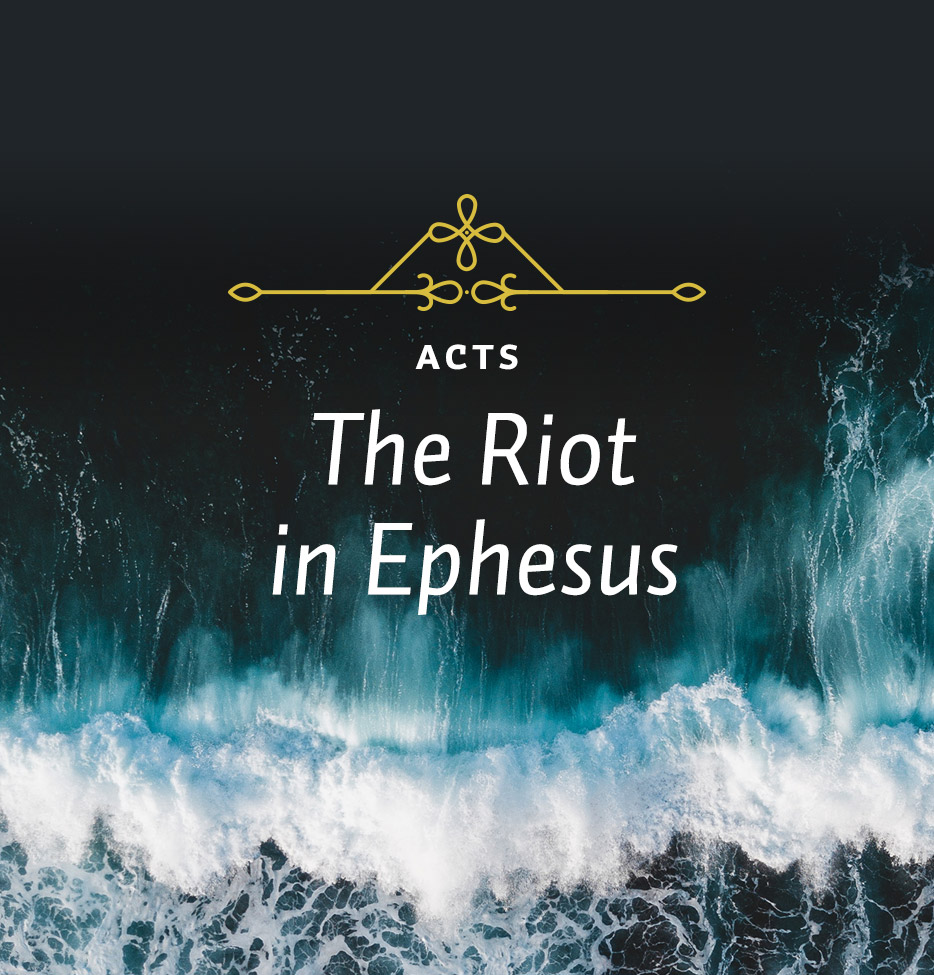In last week’s study we saw the remarkable success Paul’s preaching had at Ephesus. He stayed there for two years, and he taught every day. As a result of this effort, the Word of God spread from Ephesus throughout the entire Roman province of Asia.
But it was not without opposition. In the second half of Acts 19, we see how opposition developed in Ephesus because of all that was being accomplished through Paul’s preaching. Strikingly, it developed among the members of the silversmith guild whose income was threatened by the changed lifestyles of those who were being converted to Jesus Christ.
Some readers have been so impressed with this chapter that they have concluded that Luke must have been present in Ephesus as an eyewitness. He probably was not. We saw earlier that Luke indicates his presence in the events he is narrating by using the first person plural pronoun “we.” When he was not present, he uses the third person “they.” This section is narrated in the third person, so Luke probably was not in Ephesus. Still, he must have had firsthand information, because this is a most dramatic and stirring picture of what life in the ancient world was like.
What emerges here, aside from the incidental details that are of such interest to historians, is the intensity with which the ancients worshiped false gods. We hardly have a sense of that today. We go to museums and see the sculptures that represent the ancient gods. But we do not have any real sense of how intense or how pervasive the worship of these idols was. Everywhere in the ancient world there were temples and shrines in the cities, in the countryside, even in the homes. The manufacture of these shrines was big business. In a city like Ephesus, it was an extremely big business. It was the basis of the city’s economy.
Ephesus was the center of the cult of Artemis (or Diana, as the Romans called her). In Roman lore, Diana was goddess of the hunt. She symbolized virginity. But in the ancient metropolis of Ephesus, Artemis symbolized sexual fertility. The idols that represent Artemis and which have been found today show a rather grotesque, multi-breasted female figure. Here, as in other Greek and Roman temples, a great deal of the so-called worship of the goddess was actually cultic prostitution. Sex worship had a hold on the people, as it does on many of our contemporaries, though in a different form. Their condition was typical of the world at the time of Christ.
Remarkably, within three hundred years, as Christianity went forward, idolatry in the ancient world virtually disappeared. This is not the same thing as saying that the world became truly Christian, because it did not. But idolatry vanished. It just ended. There was only one reason for this. This was not a period in which philosophy or education or any of the other things that we look to as evidences of the greatness of our civilization advanced; none of these things were happening. The sole factor was the growth of Christianity.
This is what we should expect, of course, because the Bible itself says, “The entrance of your words gives light” (Ps. 119:130). Where Christians go forward with the message of the Gospel and the Scriptures, the light of God which shines from the pages bursts into the darkness. And even though people are not in every case—perhaps not even in the majority of cases—regenerated or born again, the light of the Gospel penetrates so forcefully that many dark practices, like those at Ephesus, simply disappear.






